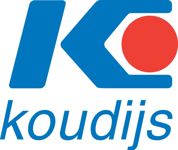
Choline
Choline is a nutrient that an animal cannot produce by itself, making it an essential (pro) vitamin. Choline plays a role in:
- Building and maintaining cell structure (as lipoprotein, e.g. phosphatidylcholine)
- Fat metabolism and transport in the liver (via phosphatidylcholine)
- Transmission of neural impulses (as acetylcholine)
- Donor of methyl (CH3) groups (after oxidation to Betaine)vfor the re-methylation of homocysteine to methionine
Most commercial diets contain an amount of choline that largely (or even fully) satisfies the animals’ requirements. However, the content of ingredients may vary, as can the biological availability. Therefore the common advice is to supplement at least part of the required choline in the form or choline chloride, which is also relatively cheap.
Betaine
Betaine is directly related to choline as it is the first product formed during the oxidation of choline. In relation to choline, betaine functions as: Donor of methyl groups for the re-methylation of homocysteine to methionine. The other functions of choline cannot be fulfilled by betaine. Sugar beet pulp and vinasse are rich in betaine. Other ingredients generally contain less betaine than choline
Methionne
Methionine is an amino acid that cannot be synthesized by the animal itself, and is therefore an essential nutrient. In relation to choline, methionine has a function in:
- Protein synthesis
- Synthesis of cysteine, a semi-essential amino acid
- Methyl donor in various processes throughout the body (after conversion to S-adenosyl methionine)
Most feed ingredients are limited in methionine content. This makes it the so-called ‘first-limiting’ amino acid for poultry and the ‘second-limiting’ amino acid for pigs. It should therefore be a standard supplement to animal feed for optimum technical results.
Replacement of choline by Betaine?
This question arises because both could function as methyl donor. Since choline has to be oxidized to betaine before a methyl group can be donated, one idea is that methyl donation could be performed more efficiently by betaine as it skips the transformation from choline. All suppliers of betaine refer to an efficacy of 0.55 of choline to betaine as
methyl donor. This efficacy was determined by one single experiment (Saarinen et al., 2001), which tested the effect of supplementation of either betaine or choline on liver betaine concentration. However, the supplementation was tested above requirements (no response in BW) and is therefore, in our opinion, not a good reflection of the efficacy below or at requirements. Considering the complexity of choline metabolism in the body and its interactions, proving a difference between choline and betaine as methyl group donor is very difficult or even impossible. Research by Lowry (et. al 1987) concluded: “When about two-third of the dietary choline needed for maximal growth is supplied
as choline then the synthetic choline and betaine are equally efficacious.”
For the reasons above, Koudijs regards choline and betaine as having equal efficacy as methyl donor on an equimolar basis in pigs and poultry. Since only 33% of the choline requirements can be fulfilled by betaine, the other 67% has to be provided by choline
from macro ingredients or by added choline chloride, in order to fulfil the other functions of choline which betaine cannot fulfil. Table 1 gives an overview of how different sources should be compared based on this equal efficacy
Replacing Methionine by Betaine?
Both molecules could function as methyl (CH3) donor. Methionine functions as methyl donor after conversion to S-adenosyl methionine. Betaine can function as methyl (CH3) donor to recycle some of the homocysteine to methionine again. However, this is no
new protein creation! It should furthermore be understood that the (pro) vitamin function and methyl (CH3) donor function in the feed is already taken care of by choline. Therefore, provided that the choline need is covered, any (partial) replacement of methionine by betaine has little use, or could even lower the technical results, and is therefore not recommended.
Conclusions and recommendation
- Choline is an essential nutrient that has to be provided by the feed
- Choline has several functions which cannot be fulfilled by betaine
- Choline and betaine are equally efficient as methyl donor (on equimolar basis)
- For methyl donation, part of the added choline can be replaced by betaine up to a maximum of 33% of the requirements
- Methionine cannot be replaced by betaine
If you would like to receive references, please contact us.




